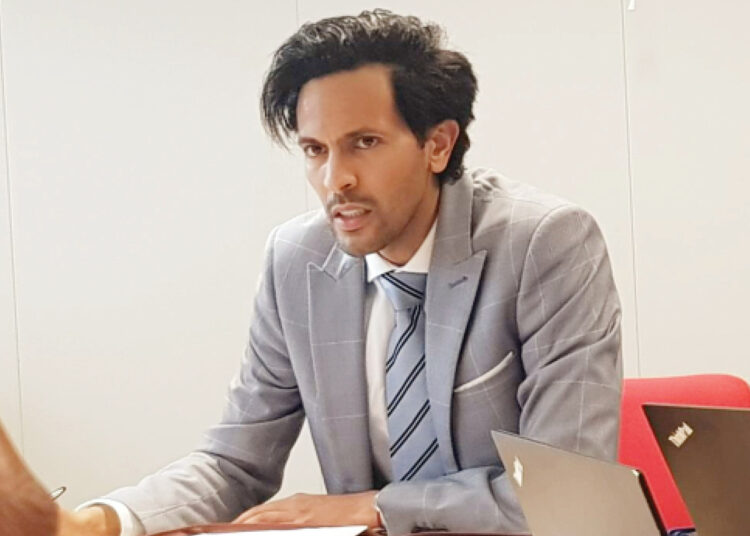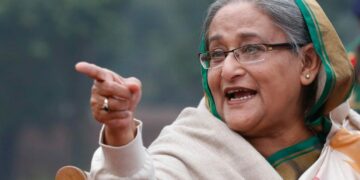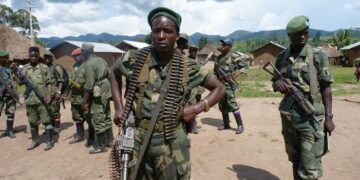The robust ties between the European Union (EU) and Africa received a massive boost recently, following the visit of some African journalists to European Union institutions in Brussels, Belgium between 26 and 30 January 2025.
The visit to the European Union Institutions focusing on challenges of disinformation drew African journalists across a wide spectrum of the media, and from countries such as Nigeria, Kenya, South Africa and Capo Verde.
Disinformation is referred to as the deliberate intention to use false information to mislead, which can potentially hurt the reputation of an institution, person and undermine the trust of the civil society and the democratic processes.
The effects of disinformation have been enormous in European societies, Africa and the rest of the world, hence the need for European institutions to counter the dangers of disinformation being spread by foreign actors in different parts of the world.
The European Union has been at the forefront to tackle what is referred as Foreign Information Manipulation and Interference (FIMI), the willful intention to twist and manipulate information to the detriment of EU and African citizens, especially the alleged growing Russia’s quest to manipulate information using its surrogates in Africa and parts of the world to hoodwink people into believing on the Russian propaganda and narratives, especially since the beginning of the war in Ukraine.
Anouar El Anouni, the spokesman of the Ministry of Foreign Affairs of the EU, said during a session in Brussels that interference has become rife because the information space has become another play ground to fuel wars, adding that conflicts not only happen on the field but also online.
According to Anouni, “EU set up a sanctions regime last October to target actors destabilizing the EU and its partners abroad. Under the sanction regime you can find a lot of information online. The European Council has a list of actors in Africa carrying out pro-Russian covert operations, particularly in Central African Republic (CAR) and Burkina Faso.
“There is the African Initiative that is spreading disinformation in Africa spreading and coordinating Russian propaganda, but we use different measures to tackle this multifaceted challenge of disinformation.”
In a related development, the EU has been quite vocal about the situation in the Democratic Republic of Congo (DRC). In a recent statement, all 27 member- states of the EU have agreed on one position which is that the EU strongly condemned the renewed offensive of the M23 rebel forces supported by Rwanda Armed forces including the capture of Goma.
The EU stated that the continued advance of the M23 rebels is an unacceptable violation of the agreed ceasefire because it further deepens the disastrous humanitarian crisis in eastern DRC. The EU discussed the situation in the DRC last Monday at the Foreign Affairs Council, which is the monthly meeting of Foreign Ministers of the 27 Member -states chaired by High Representative.
In that format the Members -States condemned the recent takeover of Goma by the M23 rebels and expressed their readiness to take measures against those that endanger peace and stability in the DRC.
“Members want Rwanda to cease its support to theM23 rebels and withdraw its troops from the DR. The PSC, a committee on peace and security comprising all the members’ ambassadors, agreed to hold accountable those responsible for sustaining armed conflict, instability and insecurity in the DRC.” Anoun told African journalists.
The EU also urged Rwanda and DRC to honour their agreement within the framework of the ‘Rwandan Process’ and to resume dialogue focusing on a political solution to the crisis.
“We have sanctions, we already have a regime of restricted measures in view of the situation in the DRC and these measures are complementing UN sanctions. We have additional regime sanctions and these measures are applied to 23 individuals and one entity. The list is public, so we make use of all the tools at our disposal in terms of our diplomatic tool box,’’ Anoun added.
On the situation in Kenya over human rights violations in the East African country, the EU condemned the excessive use of force by the police during the protest in the country, which led to over 60 deaths and many more injuries in Kenya, and called for a thorough investigation.
“We as EU, we trust that an independent and thorough investigation on these events will be carried out by the authorities in line with Kenya’s international, regional and national human rights obligations as promised by William President Ruto . We believe that it is important to hold those responsible accountable,” the EU Foreign Ministry Spokesman said.
The EU also pledged to boost investment in Africa as the continent is the largest trading partner with the EU in the world, just as the African continental Free Trade Area (AfCTA) provides a critical platform for fostering economic ties, boosting trade and sustainable development.
On the grim situation in Somalia, the EU said it is making the main financial contribution through the Peace keeping mission since its creation. The EU has been providing much of the 2.6 billion Euros since 2007 for the mission in Somalia which was recently raised at the United Nations Security Council last December, where it was unanimously agreed that the mission should be financed by the United Nations Security Council (UNSC )Resolution.
The EU also expressed its readiness to continue providing support to the mission on the basis of fair burden sharing between international partners even as it encouraged parties’ to come to agreement on a possible end to the crisis.





